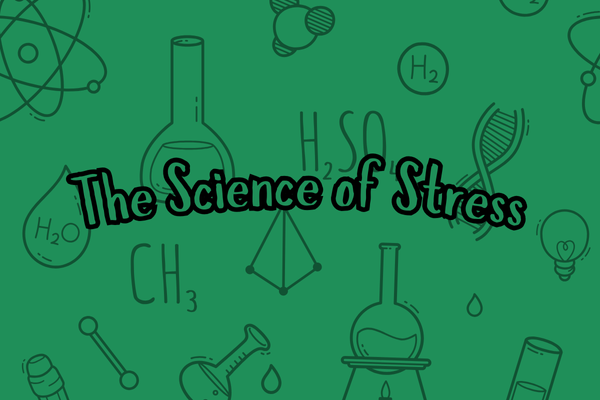Stress on the body
When the obstacles of life get in the way, our bodies react with something called stress. Although some may think that stress isn’t a big deal, stress and the hormones it produces can cause physical and mental changes that affect the body and brain in many different ways. Physical effects can vary from chest pains, dizziness, muscle tension, high blood pressure, digestive problems, and shortness of breath which can then progress into mental effects like depression, anxiety, and sleep disorders.
The science behind stress
A common reaction to stress is “fight or flight.” This reaction allows people to react to a situation that puts them in danger quickly. These situations are usually life-threatening, but it is fairly common for people to experience a fight or flight reaction due to prolonged stress from non-life-threatening issues. Repeated activation of stress hormones can cause a surge in a hormone called cortisol, which is related to severe health issues like high blood pressure and obesity. Stress activates the sympathetic nervous system which causes the adrenal glands to release catecholamines. The brain region known as the amygdala, which aids in processing emotions, alerts the hypothalamus to a distress signal. The hypothalamus triggers the sympathetic nervous system by communicating with the adrenal glands via the autonomic nerves after the amygdala’s distress signal. In response, these glands release the hormone epinephrine into the bloodstream. This causes an increased heart rate and blood pressure, as well as trouble breathing. These changes happen quickly before you can even notice.
How to manage stress
Throughout the years, the effects of stress and how to manage it have been thoroughly studied. Proven effective methods of stress management are breathing exercises, yoga, tai chi, and exercise. Exercise, like walking and weightlifting when feeling anxious or stressed can help release muscle tension and regulate breathing. Deep breathing, mental attention, and flowing motions are all combined in movement therapies like yoga and tai chi, which can all help people feel at ease. Most students these days struggle with managing stress and anxiety. Reaching out to counselors, teachers, and peers can help. According to statistics, 75% of high school students report experiencing boredom, anger, sadness, fear, or stress. On a 10-point scale, where adult stress averages 3.8, teens rate their stress at 5.8. It is important to reach out when in need to prevent any further issues.














